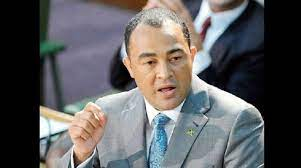HOPE is on the horizon for 500 out of 7,000 people who have been on elective surgery wait lists up to four years and longer, to finally access those procedures over the next 10 months.
In a statement to the House of Representatives Tuesday, Health and Wellness Minister Dr Christopher Tufton advised that the Government has, under its Code Care intervention, inked eight agreements with private institutions to make the surgeries happen.
He said already 170 patients have been removed from the waiting list for elective surgeries, including 35 children who received surgeries for ear, nose and throat procedures.
"This modality has been used in many other jurisdictions and has been shown to be effective in not only reducing the backlog, but also bolster the quality of care by reducing the patient load in the public sector. We are operating on the principle that there should be one health system and no distinction between public and private, and where the private has spare capacity and the public is under stress, we can transfer some of that demand from the public to private under special arrangement," he said, noting that $950 million has been allocated to the project with the vast majority of funding going towards the renovation and upgrading of nine operating theatres in four hospitals.
Dr Tufton said this will enable the local surgical staff to do more and to enhance the completion of surgeries. The ministry is aiming to remove 2,000 people from the surgery backlog.
Furthermore, a health mission from the United States is scheduled to spend five days in the island from December 1, working with local counterparts at the Noel Holmes Hospital in Hanover on surgeries for more than 30 patients.
Meanwhile, specialist nurses could be steps closer to being able to practise their profession jointly between Jamaica and North American jurisdictions as the Government hammers out cooperation agreements with the University of Miami and the Hartford health system.
Dr Tufton advised that the Government has embarked on a shift in the approach to health-care delivery, placing greater focus on developing and structuring strategic partnerships to enhance access to health care.
He noted that two agreements signed recently with the University of Miami and the Hartford health system to mitigate the training and staffing challenges that continue to plague the health system here. Under the arrangement, opportunities are to be created for training and development, and to examine the possibilities for addressing health staff challenges.
"The discussions on the MoUs have started and a draft joint training course outline has been developed and the idea is to train our first batch of specialist nurses jointly by these institutions," he said. This will include clinical rotations, information sharing and simulation, at the end of which nurses will qualify to work in Jamaica and in certain jurisdictions in the US.
"I do envision that there is going to come a point when a specialist nurse, in particular, would be able to work in one jurisdiction for five months, in another for seven," Dr Tufton said, emphasising that the memorandum opens the doors for greater collaboration in technology and the enhanced use of telemedicine to deliver health care, while training specialists.

